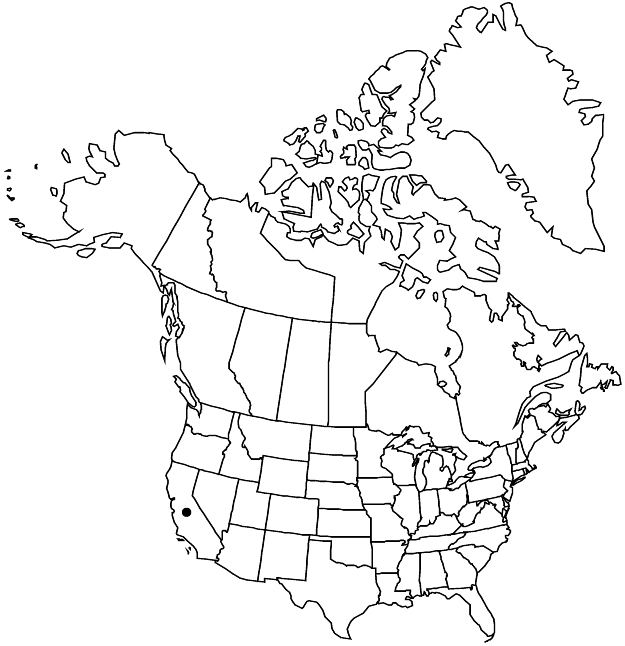Chorizanthe procumbens
Proc. Acad. Nat. Sci. Philadelphia 4: 17. 1848.
Plants prostrate to decumbent, 0.2–0.8 × 0.5–4(–5) dm, thinly pubescent. Leaves basal; petiole 0.5–2(–3) cm; blade oblanceolate, (0.5–)1–3(–4) × 0.1–0.7(–1.2) cm, thinly pubescent. Inflorescences with involucres in small, open clusters 0.3–1 cm diam., greenish yellow to green or reddish green; bracts 2, sessile, leaflike and similar to proximal leaf blades only reduced, linear-oblanceolate to elliptic, 0.3–1(–1.5) cm × 1.5–5(–8) mm, rapidly reduced and scalelike at distal nodes, linear, acicular, often acerose, 0.1–0.5 cm × (0.3–)0.5–3 mm, awns straight, 0.2–1 mm. Involucres 3–10, rarely more, greenish yellow to reddish green, cylindric or narrowly to broadly campanulate, not ventricose,1.5–3 mm, faintly corrugate, without scarious or membranous margins, thinly pubescent with spreading hairs, longest hairs on ribs and at base; teeth spreading, equal, 1–2.5 mm, or divergent, thickened basally, unequal, 1–2 mm or 2.5–5 mm with hyaline margins between teeth; awns uncinate, 0.2–0.5 mm. Flowers exserted; perianth yellow or sometimes white, cylindric, (1.7–)2–3 mm, pubescent; tepals connate ca. 2/3 their length, essentially monomorphic, narrowly oblong to narrowly obovate, occasionally with outer lobes slightly broader and longer than inner ones, entire apically; stamens 9, exserted; filaments connate basally into 0.2–1 mm tube, (0.3–)0.5–2.5 mm, pilose-ciliate; anthers cream to pale yellow, oblong, (0.2–)0.5–0.7 mm. Achenes brown, lenticular, 1.5–2.5 mm. 2n = (38), 40, (42, 44, 46).
Phenology: Flowering Apr–Jun.
Habitat: Sandy to gravelly flats and slopes, coastal grassland, coastal sage, chaparral, and desert scrub communities
Elevation: (0-)10-1300 m
Distribution

Calif., Mexico (Baja California).
Discussion
Chorizanthe procumbens is a variable complex of widely scattered, locally infrequent to common populations that occur from the Santa Monica, San Gabriel, and San Bernardino mountains southward through western Riverside and Orange counties to San Diego County. In a strict sense, prostrate plants from San Diego southward belong to C. procumbens (including C. jonesiana) while decumbent plants to the north are C. uncinata (C. procumbens sensu G. J. Goodman 1934), if such a distinction is considered taxonomically useful. Plants with a grayish hue south of our range in Baja California have been described as C. chaetophora. All of our plants have a greenish yellow cast.
Selected References
None.